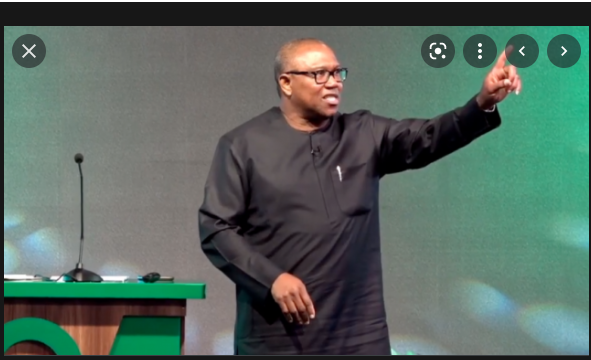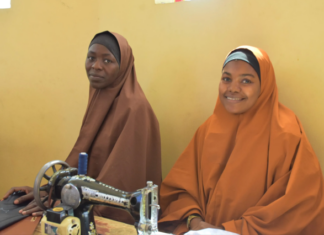Peter Obi, PDP presidential aspirant, comes on board with a rich credential anchored on transparent leadership in his days as Anambra state governor.
By Emeka Alex Duru
A particular trend ran through the inaugural addresses of Presidents John F. Kennedy, Barrack Obama of the United States of America (USA) and Nelson Mandela of South Africa. They resonated with hope and demands on the citizens to keep faith with their nations, even in the face of odds.
The three assumed offices at momentous periods in their countries’ histories. On January 20, 1961, when Kennedy was inaugurated as the 35th US President, the world was reeling under the uncertainties of the Cold War between the East and the West. Obama came on board at a time America was going through obvious economic challenges. Mandela’s election signaled the end of apartheid regime in South Africa.
The three thus faced the challenges of galvanizing their people and focusing them on the path of building greater societies. It was on that basis that Kennedy made what many consider to be the most memorable and enduring call on all Americans to commit themselves to service and sacrifice: “And so, my fellow Americans: ask not what your country can do for you – ask what you can do for your country.”
Obama followed suit 48 years later, when on January 20, 2009, he called on Americans to unite and look towards their common national heritage as a guide for facing the challenges of the future, declaring, “The time has come to reaffirm our enduring spirit; to choose our better history; to carry forward that precious gift, that noble idea passed on from generation to generation: the God-given promise that all are equal, all are free, and all deserve a chance to pursue their full measure of happiness.”
READ ALSO:
When you talk of effective leadership, you talk of Peter Obi, says Adeleke
Mandela brought the message nearer home on his inauguration in 1994, when he assured South Africans that the worst was over. He said; “We have triumphed in the effort to implant hope in the breasts of the million of our people. We enter into a covenant that we shall build the society in which all South Africans, both black and white, will be able to walk tall, without any fear in their hearts, assured of their inalienable right to human dignity – a rainbow nation at peace with itself and the world”.
These were leaders speaking to their people, urging them to close ranks in rebuilding their countries. Nigeria is in such dire situation, presently. With spiraling security challenges in all parts of the country, deplorable infrastructure base, widening corruption index, crippling economic uncertainties occasioned in youth unemployment, dwindling fortunes of the national currency and debilitating poverty among the people, Nigeria is without doubt, on a sorry curve. The copious absence of disciplined leadership class to steer the ship of state on the right course, makes the situation more worrisome. The signs, as they say, are not encouraging.
But former Anambra State governor and Peoples Democratic Party (PDP) presidential aspirant, has stepped forward, literally baring his chest to take the bullets in fixing the broken segments of the country. In 2003 when he took similar steps in Anambra, moving against an incumbent, Dr. Chinweoke Mbadinuju, with his phenomenal question –“Is Anambra cursed or are we the cause?” – many considered him running against the tide of established political culture.
But he dared and the people listened to him. Eight years after, Obi left a record that continues to blossom in many parts of the country. From a piteous position of 26th in Nigeria’s educational ranking, Anambra was taken to the first position. Kidnapping which had driven the indigenes out of the state, was tamed. Apart from not owing the workers, contactors or any person or group that had financial dealings with the state, he bequeathed to his successor money to pay three months’ salaries, run schools for a year and start more projects. To cap it, he left in savings, N75 billion ($156 million, and the rest in naira) with documents to prove same.
He is asking his party men and women to give him the opportunity of flying the PDP flag in 2023 presidential election, and replicate such feats at the national level. But even in his patriotic desire to reposition the country, Obi is not oblivious of the task ahead. The system, he admits, is broken but can be fixed.
In his recent meeting with the PDP Board of Trustees (BOT) in course of his nationwide consultation processes with stakeholders of the party, he reminded them of the dangers at hand and the need to make informed decisions in choosing the presidential candidate at their national convention.
He said; “Today, Nigeria tops the list of fragile, failing states and ranks third on the list of most terrorised countries in the world. We have, since 2019, become the world poverty capital.
“We now have an army of 50 million out-of-school children, out of which about 60% of them have not been to school at all. Nigeria is now the most stressful country to live in, according to the stress level index”.
In Ado Ekiti, Ekiti State, he told the party’s delegates that unless critical decisions and actions are taken by Nigerians, the country is headed for deeper crisis. In Akure, Ondo State, he identified rising spate of insecurity as a major challenge to Nigeria’s development. He echoed similar warning in Abuja on Monday, April 25, when he observed that the country was drifting to collapse and needed to be rescued. In Osogbo, Osun State, he decried the high cost of governance as stumbling block to providing leadership. He made similar remarks in Niger and other states.
For Obi, it is not all about woes and lamentations. He offers suggestions on how to make the situation better. His main concern is how to pull the country out of its current crisis. Doing this entails moving Nigeria from a consumer society to a productive nation. The first step in this regard, he said, is to cut the cost of governance.
He recommends job creation and empowerment of youths among measures to end the rising insecurity in the country. For him, the ugly situation, manifested in insurgency in the north East, banditry in the North West, farmer-herder clashes in North Central, kidnapping and other forms of criminality in the south is holding down the country. He pledges to end the monster if elected president.
He also makes the point that the country needs wealth creators and not sharers. This is an aspect of his pledge that deserves attention. For long, Nigerians have lived with the illusion of sharing the so-called national cake – a queer disposition that encourages drawing from the common wealth, without giving back. Obi has vowed to put an end to that faulty orientation. He did it in Anambra with resounding success.
Besides, he has a pedigree to showcase. “I am a businessman. I have chaired corporations in this country, including the Security and Exchange Commission, SEC and so many quoted companies and I have been a governor.
“It is for you to go and check all those places and see what I was able to do and ask yourself who is the right person to take leadership of this country at this difficult time,” he asserts. Facts, they say, speak for themselves.













